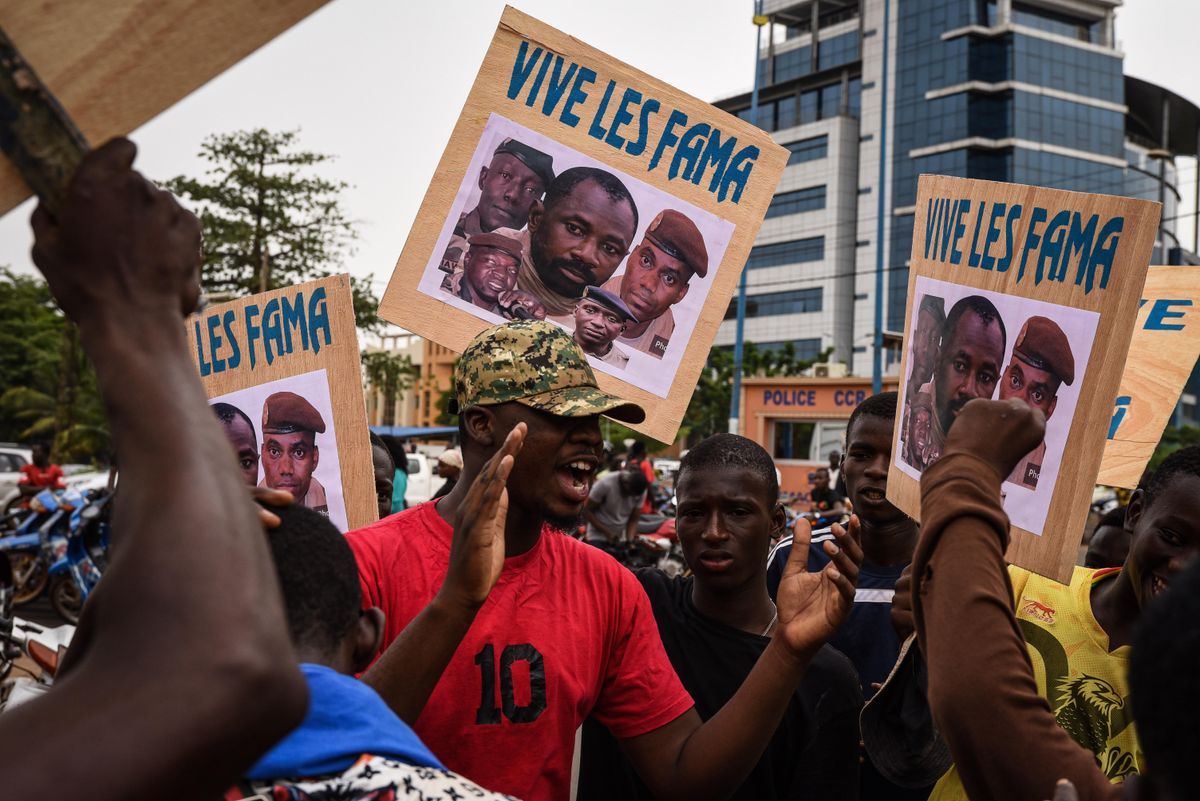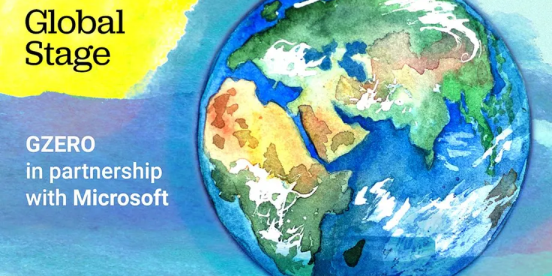We have updated our Privacy Policy and Terms of Use for Eurasia Group and its affiliates, including GZERO Media, to clarify the types of data we collect, how we collect it, how we use data and with whom we share data. By using our website you consent to our Terms and Conditions and Privacy Policy, including the transfer of your personal data to the United States from your country of residence, and our use of cookies described in our Cookie Policy.

A group of military widows in Mali show their support for the armed forces during a demonstration.
Guinea-Bissau had a failed coup attempt on Tuesday, less than two weeks after the military seized power in nearby Burkina Faso. In just a year and a half, West Africa has seen four successful coups and two failed bids.
While we’ve been seeing fewer armed takeovers of governments in the region in recent years, West Africa was once known as the continent’s “coup belt.” Do recent rumblings signal a comeback for military coups in the region?
Here are three reasons why more might be on the way.
First, the recent coups have proven popular.Malians were fed up with rampant corruption under ousted President Ibrahim Boubacar Keïta, as were Guineans with deposed President Alpha Condé, who skirted constitutional term limits to stay in power.
More broadly, most West African countries have overwhelmingly young populations that resent their leaders for failing to create enough jobs or deliver public services such as education, health, or justice.
Second, their governments look weak in the face of a big threat. Jihadist insurgencies have mushroomed across the Sahel region. Eurasia Group analyst Tochi Eni-Kalu says Burkinabé President Roch Kaboré was toppled because his government was seen as “inept” at fighting Islamic State-linked militants.
Although jihadism took root in the region a decade ago, it's now spread to vast swaths of the Sahel, and there’s no end in sight. Governments unable to control vast swaths of their territory are being exposed as vulnerable.
What’s more, national militaries feel civilian leaders are not giving them the tools they need to combat heavily-armed jihadists. Some feel they’re better off taking the reins themselves.
Third, France is in retreat. As the legacy colonial power, it’s long been a major player in the region, and since 2014 has spent over $1 billion to quash the Sahel insurgency with French troops in Operation Barkhane. But with low French public support for the mission and rising anti-French sentiment in the region, Paris has pulled back, and wants the EU’s Takuba task force to have a bigger role in the Sahel.
Eni-Kalu says that Barkhane’s dismal track record fighting jihadists further tarnished France’s reputation among West Africans. Many are increasingly buying into the conspiracy theory — reportedly pushed by Russia — that France is to blame for instability in the Sahel, and that the conflict is a ruse to safeguard French interests.
And no one else is really engaged to stop the region’s descent into coup life. Not Russia, despite rumblings about Russian mercenaries operating in Mali to thwart jihadists.
ECOWAS has some leverage, but Eni-Kalu says the 15-member regional economic bloc lacks the power to do more than slap sanctions and demand that new juntas call elections. Other global powers see little upside to getting entangled in West Africa’s problems.
So, where might the region’s next coup take place? One prime candidate is Niger, which just 10 months ago suffered a failed putsch days after its first-ever peaceful transfer of presidential power.
With soldiers now becoming more popular than politicians, an Islamist insurgency still raging and outside players looking the other way, another military takeover in West Africa may come sooner than you think.
